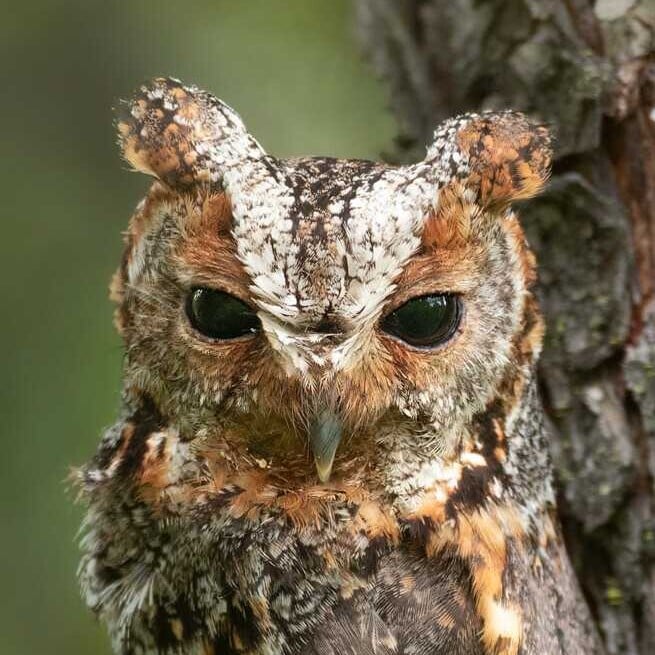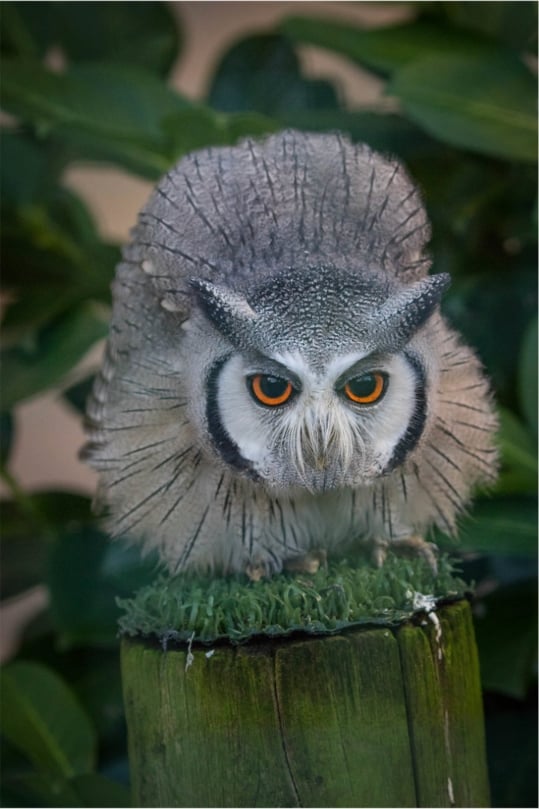In looking up the Pueo today, I learned Hawaii also had some giant terrestrial owls, somewhat like the large flightless birds in Australia/NZ. Sadly, they disappeared after people came around, so there is no real evidence of what they looked like. All we know is from remaining bones.
Stilt-owl is the other name given to birds of the genus Grallistrix. These birds from Hawaii are now extinct. There were four species of birds found in the Hawaiian Islands. Part of the family Strigidae, the fours species of these Hawaiian stilt-owls are Kaua‘i stilt-owl, Maui stilt-owl, Moloka‘i stilt-owl, and O‘ahu stilt-owl. The bird species Moloka‘i stilt-owl was the largest of all the four species from Hawaii.
The name Grallistrix was given to the genus as it roughly translates to get the meaning of owls on stilts. This name is due to the long legs that the birds possessed. The long legs are probably due to the terrestrial nature of the bird species. These birds evolved with long legs and to live on the ground due to the absence of any other mammalian species on the Hawaiian Islands. Although these birds had shorter wings, they were capable of flying. However, they preferred stalking and ambushing smaller birds sleeping on foot and raiding other colonies of many seabirds at night. They used their legs more than their wings. The Hawaiian owl species fed on smaller birds like the Hawaiian honeycreepers.
It was a peaceful life for this bird until humans started settling on the Hawaiian Islands in the late 1st millennium AD. The introduction of pigs and Polynesian rats in the range was deemed to be a factor for the stilt-owl extinct stature. Human activities like agriculture and construction throughout the range could have also destroyed the species’ natural habitat. These Hawaiian owls became extinct right after and scientists only got to examine the fossil bones of the species.
Big fkn Owls with even longer legs than they’re normally hiding under there? Tropical ones? Why must humans destroy so much awesome fkn shit?
Yes, owl legs are such a great surprise!
It sounds like the animals people brought did the bulk of the damage, but given enough time, people would have sent them the way of the dodo too.
The large birds we have left like the cassowary and shoebill are so amazing, it would awesome to see an owl that big, especially if it could fly if it really felt like it.
It’s a real shame that humans are the most invasive species on this planet. That owl looks too be the perfect size for receiving head pats.
That is a much more positive way to look at it than I had. I was worried about where that razor sharp beak was if it was in a bad mood!
You can have head-patters, or you can have pattable heads, sadly you can’t have both 😔
Hey it’s Stolas!
What is that from? I tried googling it, but I think that made me more confused.
That is pretty much what they would have been though!
Might be one of the sources listed here: https://villains.fandom.com/wiki/Stolas_(mythology)
The ars goetia in the lesser key of Solomon
That’s actually really interesting! Thanks :)
I know! I didn’t want to just mention then in the comments on the Hawaii post because it was just too cool not to get its own. It’s a shame we don’t have any record what they look like, just some artist depictions that look like modern owls.
There seems to be very little info online about them. I’m wondering how they got there since it seems like they’d have been there a long time before people to become terrestrial.



